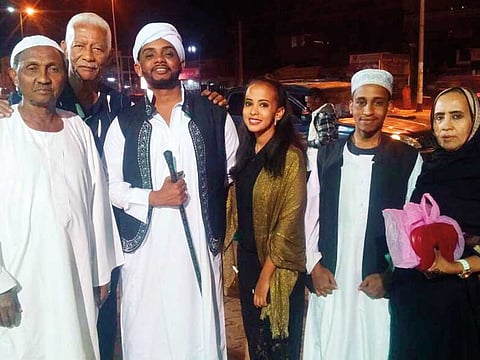‘No going back home this year for Eid’
For Mai Jaber, who no longer gets eidiya as she is grown up, giving it to children is equally rewarding

Sharjah: For 31-year-old Sudanese expat Mai Jaber, Eid will be quite lonely this year.
Jaber, who works as a dorm supervisor, was forced to move out of her home country and come to the UAE last year, to be able to support her family.
“I have spent every Eid of my life with my family back in Sudan. This is the first year that I will be celebrating [Eid] without them,” she said.
While the prospect of spending Eid without her family upsets Jaber, her spirits rise as she reminisces about the many Eids she had spent back home.
In the morning [of Eid] my younger sisters iron my father’s and brothers’ jallabiyas before they go to perform Eid prayers. Everyone is in new jallabiyas.”
For Jaber, joy is in the details of Eid tradition and ceremony.
“I love the happy atmosphere. In the mornings, my younger sisters iron my father and brothers’ jallabiyas before they go to perform Eid prayers. Everyone is in new jallabiyas, dressed and ready to attend the big family gathering at my grandmother’s house. Ladies decorate their hands with henna,” she said.
On the second day of Eid, the family gets together at her great uncle’s house.
“We get into debates, we try doing new things and visit new places,” she said.
True to Arab values, members of Jaber’s family never go visiting empty-handed. People come carrying homemade agwa-filled ka’ak, Sudanese date-filled biscuits that are baked during such occasions, and jabena, a ginger-spiced coffee that the people of Jaber’s city of Kassala in eastern Sudan are known for.
“We always make jabena on the first day of Eid. It is our speciality,” she said.
Gifts are exchanged between elders, and eidiya (cash gifts) given to children by elders.
“I used to get eidiya but not anymore. Now I have to give it,” she said with a laugh.
— Liyana Al Abdul Salam is an intern at Gulf News



